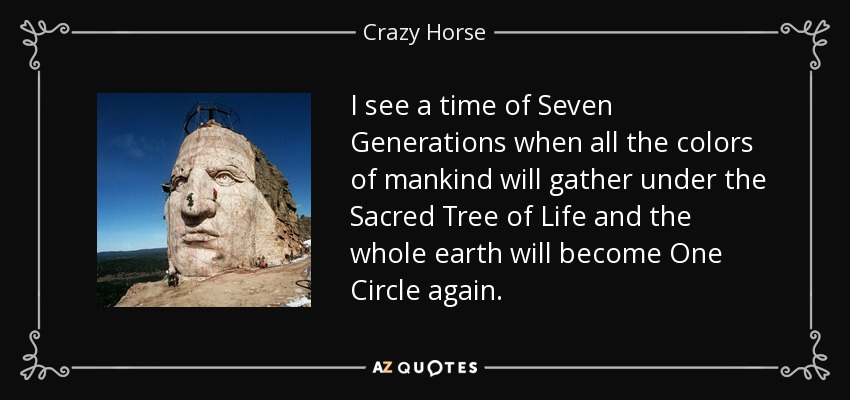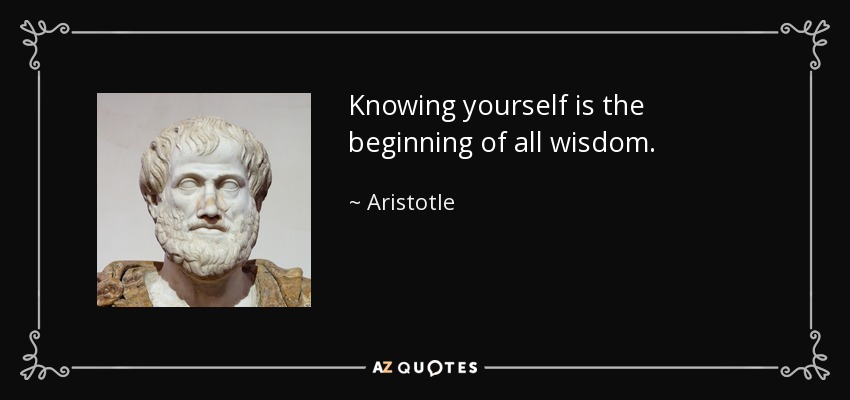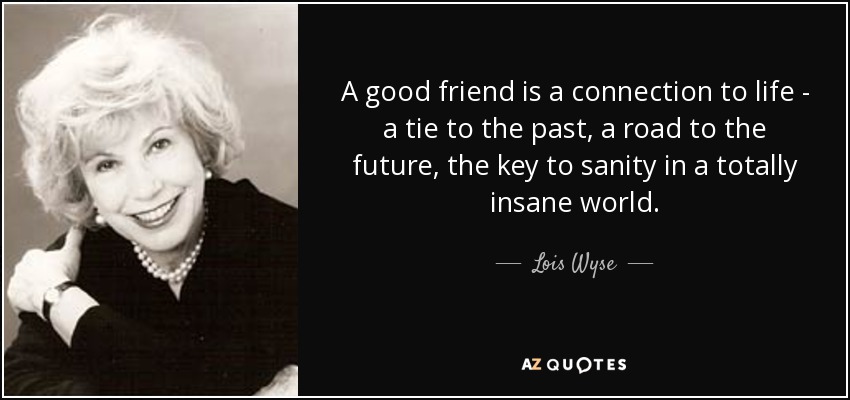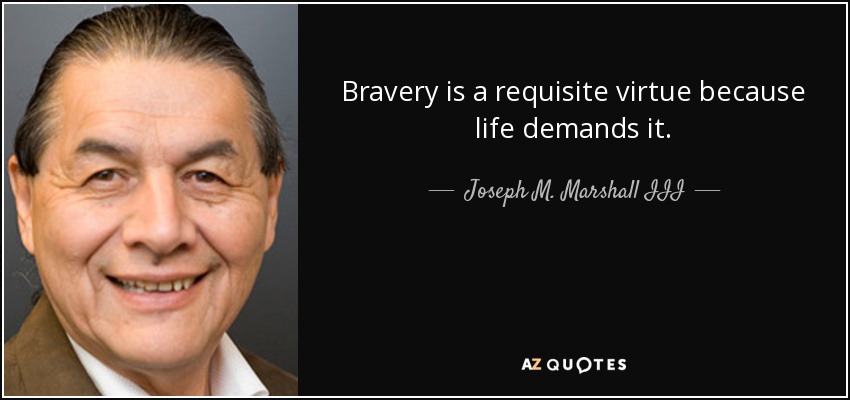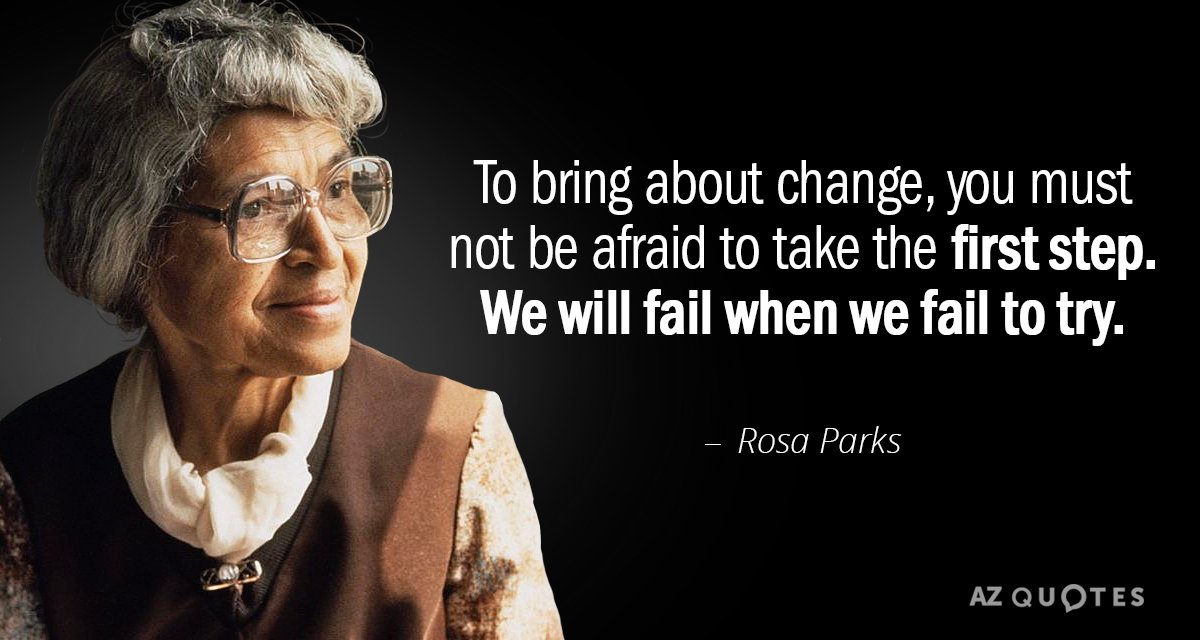Click here to return to Blog Post Intro
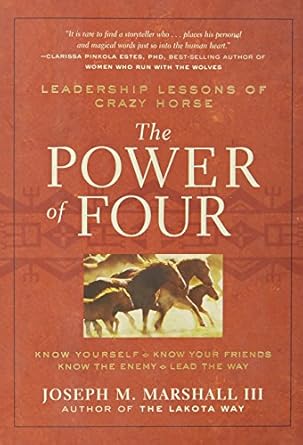
INTRODUCTION: WHAT IS A LEADER?
According to most dictionaries, a leader is “one who leads by influence.” True leadership is only possible when character is more important than authority—especially the authority to compel or control the actions of others. It is character, and not position, that can turn administrators, directors, supervisors, and even senators, congressmen, governors, and presidents into leaders.
A leader is characterized by the following traits:
- Selflessness: A selfless person puts the needs and concerns of others first by making an effort to meet or mitigate them.
- Morality: Most of us are able to discern between right and wrong.
- Experience: In pre-reservation days, the Lakota culture had a method that allowed young would-be warriors to gain firsthand experience. By accompanying military excursions and patrols not as full-fledged combatants, but as helpers and observers, they served an apprenticeship that afforded them the opportunity to learn from experienced warriors in the field. The only antidote to inexperience is time and the accumulation of experience. American society and Western cultures in general have chosen to dispense with experience by ignoring older people. After a certain age these people are considered obsolete at best or, at worst, a burden. Rather than being valued for the wisdom of their acquired life experience, they are retired and put out to pasture. This may be the single most self-defeating mind-set in any society or culture.
- Honesty
- Responsibility: Most of us as individuals and as members of our society understand what being responsible means in terms of demands on our time, effort, and financial resources, but what we sometimes overlook is that responsibility also draws on our values.
Lakota Leader Crazy Horse
Oglala Lakota leader Crazy Horse achieved prominence and fame in the latter part of the nineteenth century. He took up arms against the United States federal government to fight against encroachment by white American settlers on Indian territory and to preserve the traditional way of life of the Lakota people. His participation in several famous battles of the American Indian Wars on the northern Great Plains, among them the Battle of the Little Bighorn where he defeated Lt. Colonel George Custer in 1876, earned him great respect from both his enemies and his own people.
Crazy Horse did not aspire to leadership, but neither did he turn away from it when he was asked to make a choice. To clearly understand Crazy Horse’s place in history it is necessary to look at his role not only as a warrior, but also as an inspirational and effective leader. Crazy Horse did not teach leadership; he simply demonstrated it.
Four factors stand out when looking at Crazy Horse the leader. The number four is extremely important in Lakota culture, for the simple reason that four is all around us: west, north, east, and south are collectively referred to as the four corners of the Earth, or the four winds. There are the four seasons—winter, spring, summer, and autumn—and also the four basic elements of life, which are earth, wind, fire, and water. We humans experience four stages of life, namely, infancy, childhood, adulthood, and elder years. And we should not forget the four greatest virtues, generosity, fortitude, bravery, and wisdom. These factors or philosophies were the basis for Crazy Horse’s leadership success:
- Know yourself.
- Know your friends.
- Know the enemy.
- Lead the way.
LAKOTA LEADERSHIP
Courage alone would not have won the Battle of the Little Bighorn. Courage augmented by steady, decisive, and dynamic leadership was the key to victory. As the battles raged on, not one of the Indian leaders stood apart from the rest of the men, issuing orders. Instead, every one of them was in the thick of it, leading the way. This leadership by example turned the courage and skills of fighting men into an overwhelming force that the enemy could not match.
Crazy Horse set himself apart as a fighting man long before he ever became a candidate for leadership. He exhibited a consistent ability to remain calm and to function deliberately. It is widely assumed by those who know—or think they know—the story of Crazy Horse that he became a leader only because of his exploits on the battlefield. Yet while it is true that he certainly brought attention to himself through his bravery, especially when he placed himself in harm’s way to turn the tide of battle or go to the aid of a fellow warrior, his reputation and success as a leader also came from his ability to stay calm under the most difficult of circumstances.
In Lakota social structure the number of leaders was not as important as the qualities a leader possessed. Or as one Lakota elder put it, “One man with good character is better than ten who have none.”
THE FIRST PRINCIPLE: KNOW YOURSELF
{Sidebar: Interestingly, this was the point of my very first blog post more than five years ago, in which I describe your Most Powerful Leadership Tool!}
A popular sentiment was that a man would only stop improving with a bow on the day he died. As we continue to develop skills and gain experience, we should also never stop being honest with ourselves about our strengths and weaknesses.
In his early days as an unproven and inexperienced would-be warrior, Crazy Horse had the same training and physical skills as other young men. His first objective—like that of any other young man of the time—was not to lose his nerve. The first characteristic that other men immediately noticed in Crazy Horse was his steadiness under pressure.
If we are honest with ourselves, we sooner or later realize that no matter what image we try to project to the rest of the world, we can only act and function from what we truly are.
If there is one predictable factor about American society and Western societies in general today, it is that they are in constant flux. A direct and unfortunate consequence is that the less-tangible aspects of community and society—those lacking physical characteristics or a discernible dollar value—such as respect, devotion, courtesy, and family values, have been ignored, overlooked, disregarded, and even discarded. The function of the village, therefore, has not only been dramatically altered but also woefully outpaced by rapid technological change.
In Lakota, if skill alone did not a leader make, then which qualities were considered to be critical in assessing any man’s fitness for leadership? The answer is both logical and profound: character and experience. And both of these depended upon an honest self-awareness.
The harshest measure of any society is a lack of character in its leaders. But the even sadder consequence is the effect a leader’s lack of character has on society. Lack of character results in a weak leader, and a weak leader is a threat to the survival of those to whom he or she is responsible, if and when that lack causes ineffective or bad leadership.
Leaders of organizations, companies, and corporations should realize that their basic ethical responsibility is to reflect the values of the people they lead, and hold themselves to a higher standard in regard to value and character.
THE SECOND PRINCIPLE: KNOW YOUR FRIENDS
Leaders cannot do everything. More to the point, they cannot do anything alone. The word leader implies that there are others—those who need to be led—involved. The leader’s first task is to identify those people who are committed to a goal and have the necessary skills and abilities to help achieve it, and then motivate them to follow. The trick is how.
Authority can be a wonderful thing, but to depend on it first and always—either as a leader or a follower—is to disenfranchise the leader-follower dynamic.
Today few of us have the advantage of growing up with the people with whom we work. We must remember that there is more to life than a job or a career, and there is more to a person than the position he or she holds in an organization.
For different reasons and in different ways, a bond of trust was established between Crazy Horse and his intimate companions and fellow fighting men. When people know they can depend on one another, they are powerful. This is the kind of power upon which cooperation, allegiance, alliance, devotion, and dedication are formed. When people share this kind of trust and empowerment, then no problem, task, or objective seems impossible—be it a buffalo hunt, a battle, erecting a lodge, or the prospect of facing a grim future.
Alliances and friendships are not forged for sharing the good times. We form them to help one another through the difficult times and the most trying situations. When we stand by our friends through their hard times, we show them that they can trust us; and that ensures that they will be there for us when we need them. No leader—no matter how motivated, dedicated, or qualified—can do it alone.
THE THIRD PRINCIPLE: KNOW YOUR ENEMIES
Adversity has always been part of our existence. No matter how weak or strong we are, the world has always been a dangerous place. Difficulty, discomfort, adversity, and danger are burdens—to the extent that anything that threatens to change our well-being, our happiness, or our status quo for the worse is regarded as “enemy.”
Many would say that the worth of a nation was measured by the power of its enemies. This may be the basis for the saying that whatever doesn’t kill you will make you stronger. To stand up to them consistently, a nation or tribe had to be strong. Therefore, an enemy taught you the necessity for strength and watchfulness. Knowing the enemy was an integral part of defending against them.
By the mid-1870s, Crazy Horse realized that, in addition to taking land, the basic objective of the white soldiers was to kill as many Lakota as possible. Historians like to say that he emulated the superior field tactics of the U.S. Army, but in reality, it was the Lakota who had the superior tactics and better-trained fighting men. Crazy Horse tried to convince other Lakota military leaders that their most effective tactic against the soldiers would be to kill as many of them as possible. Because their enemy did not fight by the Lakota codes of honor and respect, he knew that the Lakota would have to fight a war of attrition, just like the Euro-American invaders, if there was to be any chance of driving them out of Lakota territory.
Although it was evident early on that the whites were aggressive, the Lakota made the grave mistake of not recognizing the true nature and intent of the Euro-Americans: that they were imperialistic and came with the intent to colonize and control. Had the Lakota known more about the enemy from the east, perhaps their military strategy and tactics would have been different, and perhaps they would have taken a different approach at the negotiating table.
In the end, the overwhelming number of Euro-Americans was the one factor that exponentially strengthened their other advantages, such as technology, imperialism, and ethnocentrism.
The adversarial relationship between the Lakota and the U.S. government still goes on. The present-day Lakota know their enemies, although they are now called “obstacles” or “challenges”: among them are apathy, ethnocentrism, and racism. The battlegrounds have changed to courtrooms, but the people have no choice but to continue fighting for the same reason Crazy Horse, Sitting Bull, Spotted Tail, Red Cloud, and other leaders did: survival.
The spirit and soul of any society, of any nation, should be more important than economic and military strength. When all segments of society understand the causes of poverty, bigotry, ignorance, apathy, and homelessness and work to eliminate them, there is character. Such character enhances and tempers any other kind of strength. Therefore, the sign of a strong society should not be the number of its weapons or the size of its military, but how quickly, efficiently, and compassionately it takes care of its less fortunate citizens.
Apathy, arrogance, and greed cannot be profiled in the same way that we try to conveniently categorize an enemy that professes to a different ideology or takes up a gun against us. Those are the enemies of every society, every culture, and every nation.
Perhaps the overabundance of technology, military might, and self-obsession has left us little room for compassion. Perhaps apathy and indifference are too great as enemies. Or perhaps not?
Poverty, apathy, ignorance, racism, and other social ills are obviously not conventional enemies in the sense that they do not field armies, launch invasions, or stockpile weapons of mass destruction. They are, however, as persistent, insidious, and deadly as any enemy, conventional or otherwise. The survival of individuals, societies, and nations is dependent on vigilance and the willingness to stand up against enemies that threaten.
Ordinary people have two basic choices in the face of indifference and the other enemies that plague us: We can do nothing or we can do something. Either choice has consequences, of course. Doing nothing empowers apathy, indifference, racism, and so on.
THE FOURTH PRINCIPLE: TAKE THE LEAD
To know yourself honestly, to know your friends or those who struggle, work, or fight alongside you, and to know the enemy are all hallmarks of the intellect of any leader. Knowledge and experience rest in the mind of a leader, therefore, but character rises out of the heart. And it is only from the heart that one can lead by example.
A Lakota village council in the old days was called wicahcala omniciye, or “gathering of old men.” They had gained experience and wisdom, which enabled them to understand that their place on the council was not a personal stepping-stone, but a solemn duty to the people—all the people. Furthermore, individual members of the council were known as woglaka wicasa, meaning “the man who speaks,” which named their duty to speak for the people.
A nation reflects the values of its people, and so it follows that the government of a nation should be an insight into the people it represents. A nation or a society without values produces leaders without character.
One is a good leader when what he says is validated by experience and what he does is validated by character. Every elected official, legislative body, board of directors, or organization, corporate, or company head leads by example whether he realizes it or not. Unfortunately, in some cases these people demonstrate how not to do or be something.
Put this question before anyone who thinks he is a leader: How should you influence the actions and attitudes of others?
Crazy Horse took the oath to uphold the vision of “a Shirt Wearer.” For Lakota to wear the Shirt, you must be men above all others. To be “above all others” here means:
- Leaders must strive to represent the best that their community, society, or nation stands for, such as selflessness, humility, generosity, sacrifice, and compassion.
- None should become leaders for the prestige or rewards of leadership.
- You must help others before you think of yourselves. Help the widows and those who have little to wear and to eat, and have no one to speak for them.
- The needs of the leader are secondary to the needs of the people—and the needs of those who are less fortunate in any way should be the first priority.
- Do not look down on others or see those who look down on you, and do not let anger guide your mind or your heart.
- A leader’s status does not place him or her above anyone else, and that he or she must regard and treat everyone equally.
- Leaders must be big enough—or confident enough in the truth about themselves—to disregard any who condescend to or belittle them in any manner.
- Be generous, be wise, and show fortitude so that the people can follow what you do and then what you say.
Three virtues were considered by Lakota society to be most important:
- Generosity: Leaders are expected to be generous with their time, talents, and material resources.
- Wisdom: They are expected to speak and act wisely and seek guidance from those who are wiser, to the point of setting aside their own egos.
- Fortitude: Leaders are expected to remain steadfast in all things.
Above all, have courage and be the first to charge the enemy. Courage is just as important as generosity, wisdom, and fortitude. It is one of the four greatest virtues in Lakota society. To act courageously on behalf of the people is—or should be—more highly regarded than the accumulation of material wealth.
The Lakota high standards for leadership were based on three realities:
- They understood that leaders are fallible human beings and would sometimes—or perhaps frequently—fail.
- Leaders were selected to serve the people first and foremost.
- Leaders were to reflect the values and the will of the people, not impose their own on others.
Crazy Horse devoted his life to these standards. His legacy can be an inspiration to us all.
WHAT ABOUT TODAY?
We modern humans think of ourselves as superior versions of our ancestors. While it may be true that on the average we are physically taller and larger, the jury will be out for some time as to whether or not we have improved as a species.
Good leaders and good leadership are necessary in every walk of life. No organization can hope to function and accomplish its purpose or mission without them. Leaders may be complex as individuals, but leadership does not need to be complicated.
Value-based character can be more powerful than authority. Authority can be lost or taken away or diminished, but character will remain steadfast.
Rosa Parks and Jimmy Carter are certainly examples of selfless leadership. Every society, every nation needs leaders like these in every walk of life to put the needs of others ahead of their own. These are the kind of leaders who understand the responsibility of the positions they hold and then honor that responsibility.
One of the defining values consistently exhibited by Crazy Horse was his compassion for the weak and the powerless. It was what eventually drew people to him as a leader.
Crazy Horse did not limit his leadership to dynamic acts on the field of battle. He was there to face life day in and day out just like anyone else. As a warrior, he did set himself apart and demonstrated courage and steadiness under duress, which was what convinced the people that he possessed the qualities of a good leader. But his skills and bravery on the battlefield were augmented by his character, which reflected the community and society of which he was a part.
Crazy Horse did not lead because he was much better than anyone else or by setting himself above others. His lodges were not bigger or taller, nor did he have more than anyone else. His horses were not better, faster, or more expensive than anyone else’s. As a matter of fact, his herd was smaller than most because he gave horses away to those who needed them.
Crazy Horse knew that one of his enemies was inaction; so he consistently took the lead by setting the right example. He did it first before he asked anyone else to do the same. He was dedicated, selfless, and persistent. And he did it all with humility. His own welfare, reputation, and standing—his image, if you will—were always secondary to the wishes and the welfare of the people.
We should expect no less of ourselves in positions of leadership, or from the leaders who serve us today.

